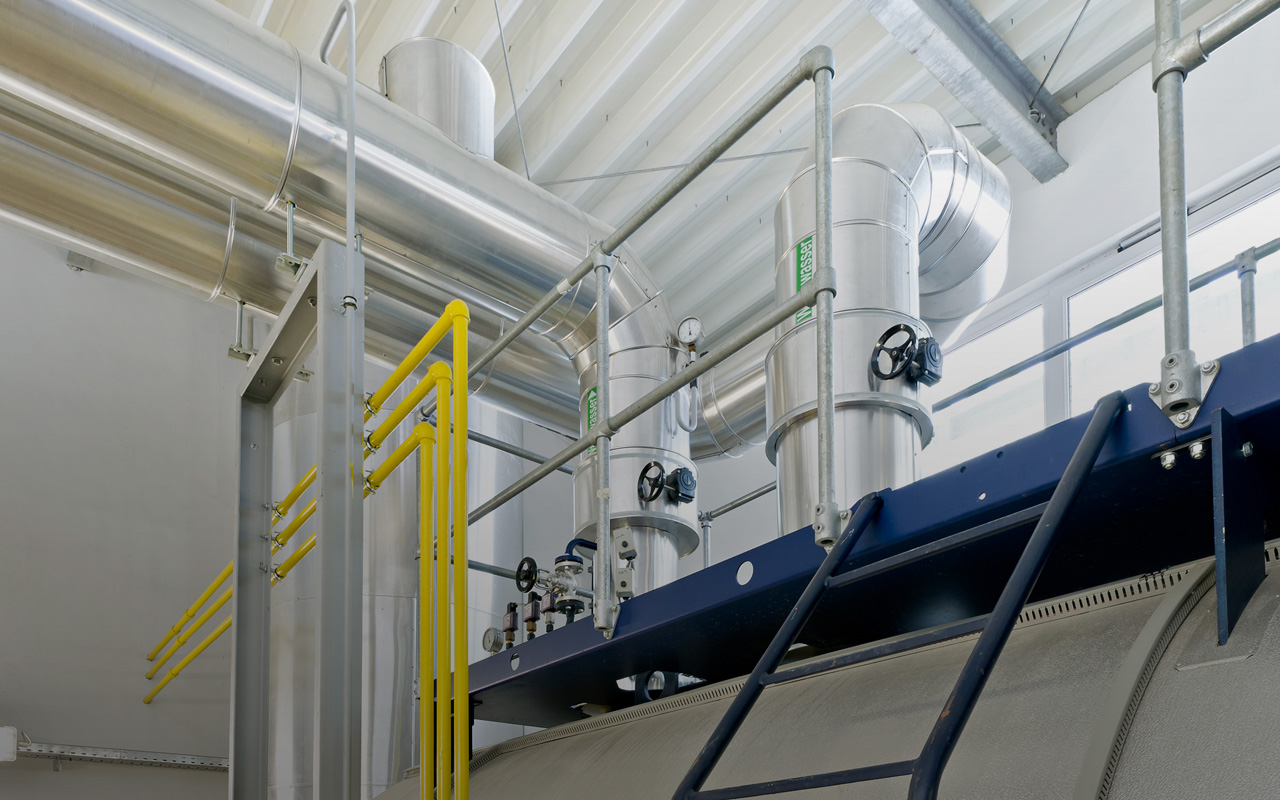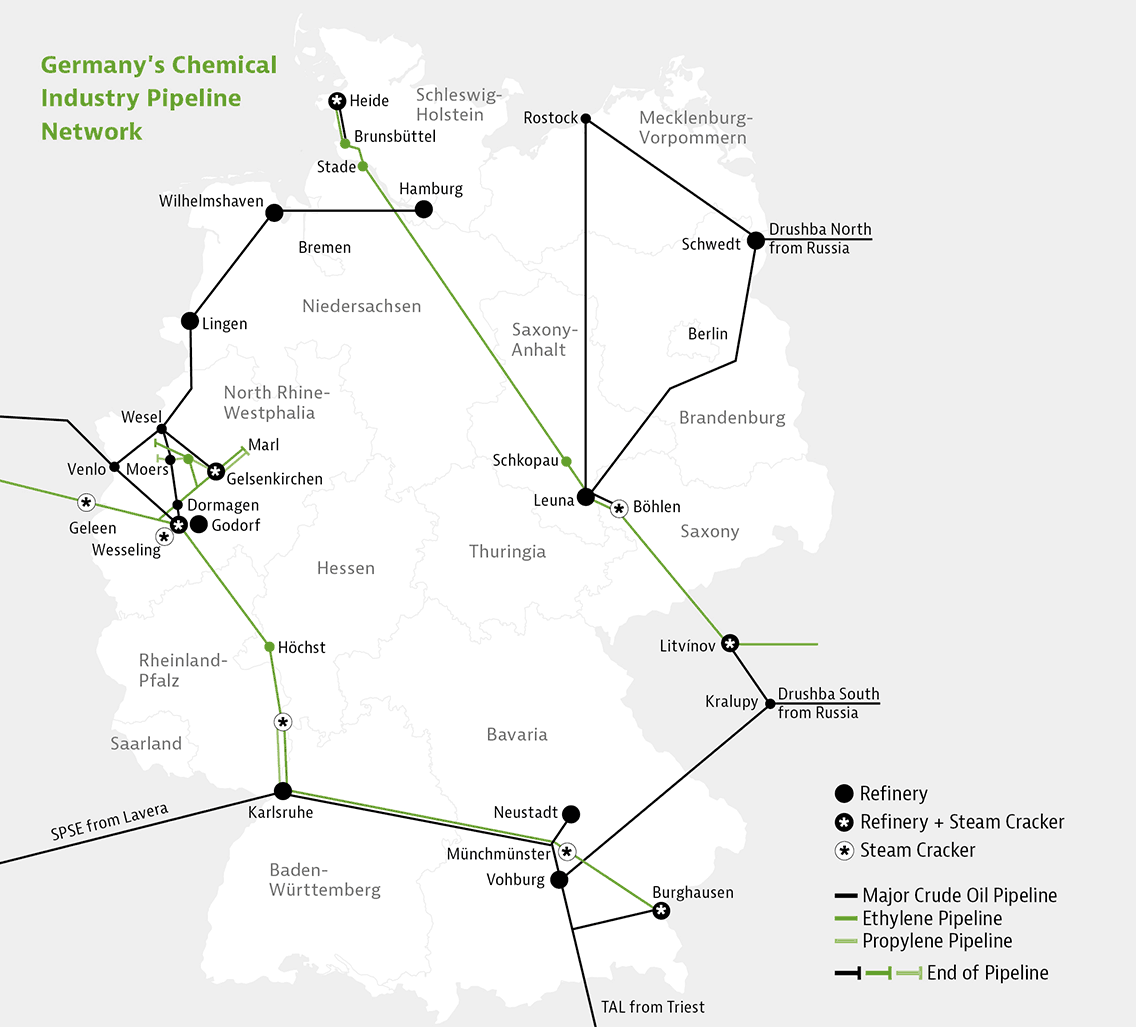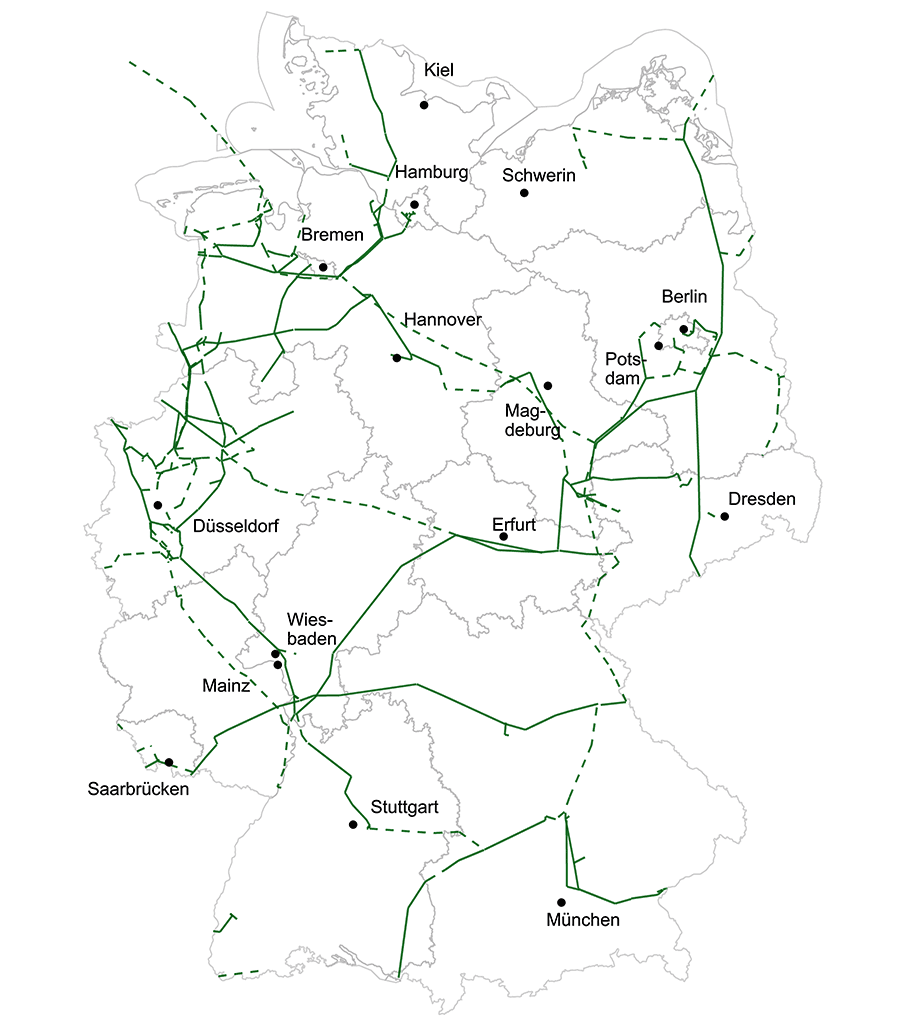
Portfolio of Services
Tailor-made services
The local operators of the Chemical Parks offer the chemical industry a broad range of services, covering all activities from planning to construction and operation of chemical plants. These services often include the provision of energy and water, disposal of liquid waste and other waste materials, process and plant safety, as well as environmental protection, security and fire prevention.
Fast start-up on a “plug and play” basis
At the early stage of investment, the local operators help investors comply with national regulations. Established processes and contacts with competent public authorities expedite licensing procedures so that activities can start on a “plug and play basis”. Companies can obtain energy supplies, raw materials and intermediates and use plants and facilities collectively.
These services are e.g.:
- Technical and maintenance services
- Warehousing and logistics
- Engineering and planning
- IT and communications
- Analytical services
- Facilities management
- Safety/quality/environmental control
- Power grid services
- Human resource services
- Training (vocational / advanced)
- Medical services
- Public relations
- Crisis communication
- Event management
- Waste management
- Permits and authority management
- Fire brigade
- Security services
If you are looking for specific items of information, also use our search function in the header.
 Enlarge
Enlarge
Pipeline
The pipeline network of the German chemical parks is an essential part of the chemical industry in Germany. The German Chemical Parks are interconnected via numerous pipelines, as well as being linked to neighbouring countries. This exceptionally well developed network of pipelines connects the Chemical Parks to the European transshipment centres for crude oil, natural gas and naphtha. Pipeline connections with Mediterranean and North and Baltic Sea ports in addition with LNG terminals at the German coastline ensure stable supplies of crude oil and natural gas from various sources. The Chemical Parks also obtain ethylene and propylene via pipeline connections. Pipelines for hydrogen, carbon monoxide and specialized gases link the chemical complexes to each other. The repurposing of existing pipelines for the transport of new raw materials, such as hydrogen or carbon dioxide, is a current and important issue in the energy and chemical industries. Repurposed pipelines can be integrated into the planned European Hydrogen Backbone to create a comprehensive hydrogen infrastructure in Europe.
 Enlarge
Enlarge
Planned Hydrogen Core Network 2032
With the successive introduction of the planned Hydrogen Core Network by 2032, Germany with its hydrogen infrastructure will further consolidate this country’s leading position in Europe.
The optimized Core Network will comprise 9,040 kilometers in total and require an investment of 18.9 billion euros. This considerable investment sum reflects the significance of the hydrogen market for the chemical industry. The Core Network will have feed-in and feed-out capacities of around 100 gigawatts, enabling the efficient distribution of hydrogen throughout Germany. The high capacity of the Network ensures a reliable supply to the chemical and pharmaceutical industry where hydrogen is an important raw material for many processes.
The planned Hydrogen Core Network is the basis for the continued expansion of the hydrogen infrastructure and can be further developed to cover the increasing demand for hydrogen, also in the future. At the same time, it is efficient in order to facilitate the transport of hydrogen over long distances. The Core Network also allows the use of hydrogen to reduce CO2 emissions. Above all, the planned Network – and thus the urgently needed hydrogen infrastructure in Germany – will be realized fast.
The Hydrogen Core Network forms the foundation for the advancement of the hydrogen market and provides for a reliable supply with hydrogen to the chemical and pharmaceutical industry. Moreover, the Network drives forward the use of hydrogen as an energy source in other sectors such as transport and power generation. The chemical and pharmaceutical industry in Germany can fully utilize the advantages of a reliable, efficient and climate-friendly supply of hydrogen.
The cost benefits of fewer employees
The bottom line is: Chemical Parks enable investors to focus entirely on production. Pharmaceutical and chemical companies located at these parks require fewer employees because of the wide range of services offered by the location operators. This is an additional cost benefit in terms of competition. The process of starting up production facilities is quick and easy. Companies can launch their products fast and efficiently onto the nearby European markets.
